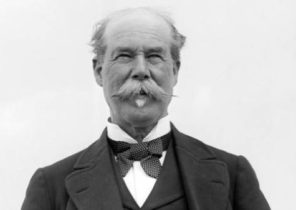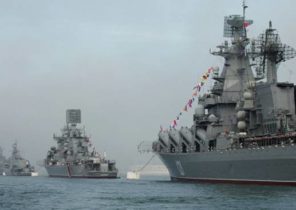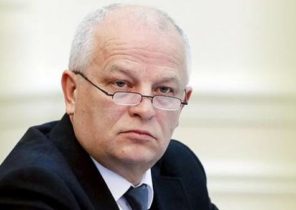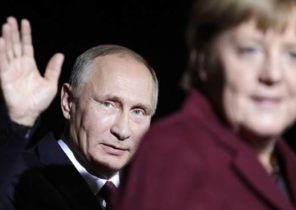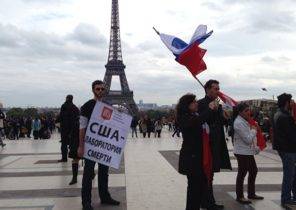Crises can clarify some things. During the financial crisis of 2008 to 2009 club of the G20 came into its own that was a reflection of how economic power has gone beyond representing a rich world of the G7 group. Pandemic coronavirus revealed one thing — the lack of global leadership. At this time, the G20 was limited to rhetorical promises to “do everything necessary” to support the suspension of debt payments for poor countries. America, who led the global campaign against HIV/AIDS and Ebola, today, absorbed by its internal squabbles. As for the UN Security Council, he confirmed his incapacity.
The five permanent members of the UN Security Council divided as follows: — the three Western States, and even Russia and China; some observers believe that the members of this authoritarian Duo entered into a formal Covenant. Russia often uses its veto, sometimes together with China. Instead of go into action in the fight against covid-19, the Board was able to make the initial decision on the crisis in April. France and Russia pushed for a meeting of representatives of the five permanent members of the UN jubilee year, however, they found that such a meeting is hard to organize.
Pandemic coronavirus struck at the moment when the rivalry between America and China, between the world’s dominant power and a rising power, it was already very busy. It has spread to areas such as trade, technology, Finance and regional dominance in Asia. In America there is a bipartisan perception of China as a rival, which is engaged in theft of intellectual property, enjoys the openness of America, as well as going to intercept the leading role of America. China, for its part, is becoming more openly pushes America (and any other resisting country).
Any failure of American global leadership is the opportunity for China
The crisis caused by the pandemic coronavirus, is an eloquent proof of this rivalry, while America accuses China that he was the cause of the current pandemic, while China tries to present itself as a country that is best able to deal with it. Any retreat from America’s global leadership provides an opportunity for China to strengthen its position. While America has suspended funding to the world health organization, China promised to provide $ 2 billion to fight the pandemic.
Chinese President XI Jinping is trying to represent China as an active supporter of multilateralism, and it says “active and leading role in the reform process of the global system of governance.” China is creating channels to influence outside America developed institutions. Beijing based Asian infrastructure investment Bank (Asian Infrastructure Investment Bank), invading the territory of the world Bank. He actively supports the BRICS group (in addition to China, includes Brazil, Russia, India, and South Africa) and the Shanghai cooperation organization, a group of eight States, which includes Russia, Central Asian countries and also India and Pakistan. In addition, there is the initiative of the President C called the “One belt, one road”, which is a comprehensive infrastructure project and development project.
China is systematically strengthening its influence in the existing institutions, not least in the UN. It has increased its financial support of this organization, while America has become more curmudgeonly, and as a result, Beijing now ranks second in the transfer of funds to the General budget and the budgets of peacekeeping operations. China has become more assertive. “Ten years ago, China was behaving rather modestly, trying to present itself as a normal country with a developing economy, says one European diplomat at the UN. Today, in my opinion, Beijing feels absolutely freely, and the Chinese now want to manage this system.”
China patiently directs his promising people that they rose up through the ranks in this organization. The Chinese now lead the 15 specialised UN agencies, including those located in Rome the Food and agriculture organization of the UN and the international telecommunication Union (International Telecommunication Union) in Geneva. The Americans are headed by only one such Agency. Chinese officials are actively trying to insert into documents a positive mention about the initiative of “One belt, one road”, as well as supportive language and language links on their interpretation of human rights, while stressing national sovereignty and development (mutual respect and mutually beneficial cooperation”). Behind the scenes China is twisting the arm in an attempt to avoid criticism of its repressive operations in Xinjiang and Tibet.
A number of small victories China is increasing; it often can be found in the vague documents or on the discreet forums, but sometimes the actions of Beijing are surprising. For example, the framework consisting of 15 members of the UN Security Council the West and its friends can usually count on getting nine votes in order to take their solution on procedural issues. However, in March 2018, supported by the United States proposal on the statement of the high Commissioner for human rights on the formal session with information on the issue of violations in Syria was not supported, and it happened once under the pressure of China the government of côte d’ivoire at the last moment changed its position.
Perhaps the goal is not to replace America as a superpower, carrying their burdens around the world. Most likely, China simply wants to have a clear path for further development. In the study entitled “the people’s Republic of the United Nations” (People’s Republic of the United Nations), which was conducted last year by the research Center for a new American security (Centre for a New American Security) stresses that China is “making the world safe for autocracy”. For a long time America paid little attention, but is now catching up in this regard. In January of this year, the state Department appointed a senior diplomat Mark Lambert (Mark Lambert) is responsible for countering “malign influence” of China and other countries in the UN. In March, these efforts bore results, and the representative of China could not obtain a leading position in the fifth Agency located in Geneva the world intellectual property organization (World Intellectual Property Organisation).
At least, such steps show a recognition by the us administration of the fact that multilateral institutions matter. Since Mr. trump no longer calls NATO “obsolete” organization, as he had done before, he might now find more benefit in the existence of the UN. It will not be the first American President who came to the conclusion that the international form, no matter how annoying they may be, better than the constant freedom for all, and, besides, they are able to remove some of the burden from the superpower. However, based on the transactions approach unnerving allies, as well as having a very negative impact on their confidence in American leadership.
In search of the middle way
As a result of “middle powers” are seeking other ways to protect a liberal order. The White paper presented last year by the Ministry of foreign Affairs of the Norwegian Parliament, the erosion of international law and the multilateral system named “main interest in the field of foreign policy.” In new York, France and Germany launched the Alliance for versatility (Alliance for Multilateralism), the purpose of which is the creation of various coalitions and initiatives on a variety of issues — from the false news (fake news) and responsible use of cyberspace to gender equality and the strengthening of international institutions.
Began to spread coalition of countries who have similar views on certain issues. After Mr. trump got out of the TRANS-Pacific partnership (Trans-Pacific Partnership), from the agreement on free trade, Australia, Japan and nine other countries were quick to create their own partnership. The European Union and Japan concluded a trade agreement covering a third of world GDP. As for the defense, then the President of France Emmanuel macron together 13 countries within the European initiatives for intervention (European Intervention Initiative), and he’s still more interested in “strategic autonomy” of Europe. Asian countries are strengthening ties among themselves as concerned by the growing assertiveness of China and are unsure of the obligations of the United States.
In this kind of “mini-multilateral” (minilateralist) or “mega-multilateral” (plurilateralist) projects of the national government are not the only participants. Regional States, non-profit organizations (NPOs) and business leaders are also present on the stage. To combat covid-19 Foundation bill and Melinda gates Foundation, the philanthropic giant, plays a more significant role than many governments. Some us States do additional work after Mr. trump withdrew from the Paris agreement (on climate). California Governor Jerry brown (Jerry Brown) in 2018 hosted the state summit on Global action in the climate (Global Climate Action Summit). In one forecast, where were kept all shares at the supranational level (the amount is comparable to the second largest economy in the world), refers to the possibility of reducing greenhouse gas emissions in America by 2030 by 37% compared to 2005 levels.
Will all these disparate steps on average something more than the sum of its parts? Until it is clear. Michael Fullilove (Michael Fullilove) from the Lowy Institute (Lowy Institute), the Australian research center, believes that countries with the same views should form a “coalition of the responsible” (coalition of the responsible). Because some middle powers, including Taiwan and South Korea, distinguished himself in the fight against the pandemic coronavirus, it also offers to create a “coalition of the competent” (coalitions of the competent). Further inept actions of the major powers in the fight against covid-19 will make more urgent the question about the coalition of middle powers. However, the average powers should not bet on it, says shakeh Cory (Kori Schake) from the Institute of American enterprise (American Enterprise Institute), another research center. Without a dominant power, which determines the agenda, gives the necessary impetus and provides much of the funding will be very difficult cooperation of the smaller countries to “achieve the required speed of isolation” (escape velocity). At best, they can only slow, not stop the process of destroying the liberal order.
Middle powers are active, but the same can be said of smaller countries. In the case of unification of States, even all kinds of small fish can have an effect. According to its Charter, the UN “is based on the principle of the sovereign equality of all members”, therefore, each of the 193 members of the General Assembly shall have one vote. India (population 1.4 billion) is no different from Tuvalu (population 12 million).
The group of 77, formed in 1964 and consisting today of 134 members, is pushing the interests of developing countries. Today it is less homogeneous than before, but nevertheless capable of exerting influence (for example, when the selection of the Secretary General), as well as to attract attention (its Chairman last year, was elected Palestine). The Alliance of small island States (Alliance of Small Island States) has made to the agenda the issue of climate change. Samantha Power (Samantha Power), the U.S. permanent representative to the UN during the reign of President Obama, made a point to visit with the representatives of all the countries in the headquarters of UN in new York, and she met with representatives of all the countries, except North Korea.
The importance in the diplomatic area of the Caribbean Saint Vincent and the Grenadines (population 111 million), with its six embassies in the world was insignificant, but it is a good example of the influence small States. One of its embassies is located in Taipei, and St. Vincent and the Grenadines is one of the few States that officially recognize Taiwan. The mission of that state in new York is expanding, because presently Saint Vincent and the Grenadines is one of the ten non-permanent members of the Security Council (all composed of the representatives of 15 States). “The fundamental principle is that all small States were in favour of adherence to international law”, — says Inga Rhonda king (Inga Rhonda King), Ambassador of the state of Saint Vincent and the Grenadines. They are “most active” support the principles of sovereign equality, non-interference and the renunciation of aggressive actions, she adds. Place in the Security Council provides her the opportunity to discuss the most important issues (especially the safety climate and relations with Africa). In addition, Saint Vincent and the Grenadines is a small country, and it allows you to act without unnecessary delay. Ms. king would like to see the same quick response of the state to covid-19 and to draw attention to Africa, which, apparently, will be the next frontier of the pandemic.
